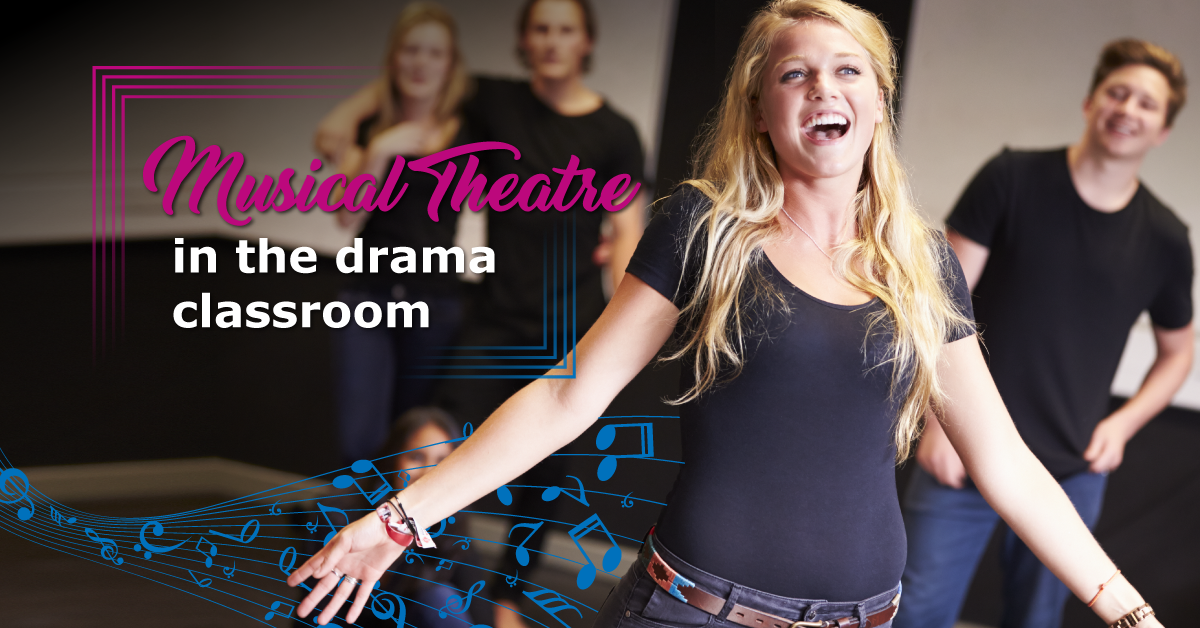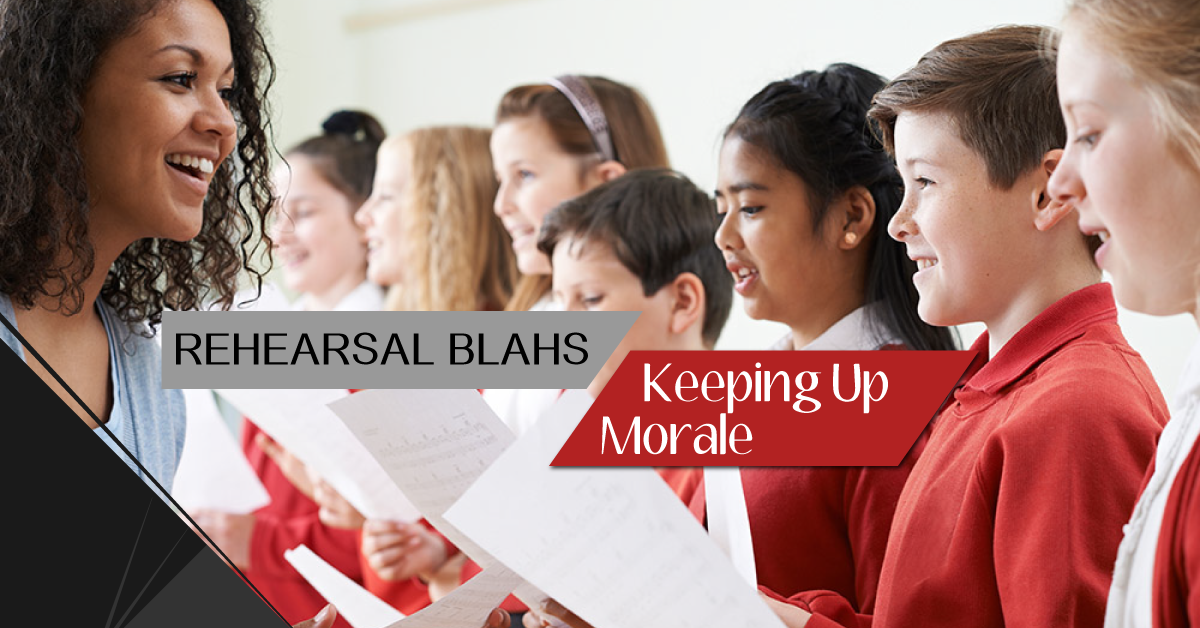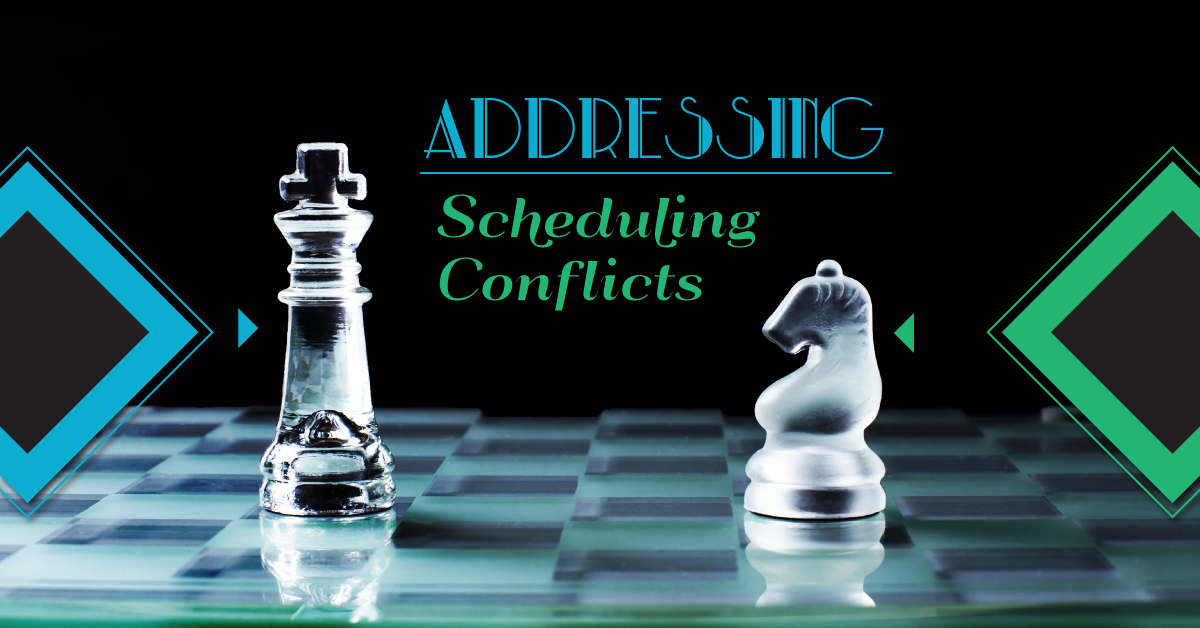Musical Theatre in the Drama Classroom
Have you ever considered including musical theatre in the drama classroom? Does the thought of singing in front of others scare your students to death? Does it scare you to death?
If you’re going to offer a full range of theatre subjects in your curriculum, musical theatre is an important piece. We talked to teacher Colin Oliver about why he includes musical theatre in his program and why you should too, even if you have students who will never sing a note outside of class.
Why teach musical theatre to young people?
Musical theatre is a wonderful access point for so many people into the world of theatre. Even if the situations are not accessible or relatable, it’s the kind of heightened emotion of the high stakes emotion that young people are particularly drawn to.
Why does singing speak to us in a different way than speech?
Colin says, “I think that singing is, in some ways, more than just speaking. It’s such an emotionally expressive method of communication. I think it’s very hard to sing without emotion.”
Why should the reluctant theatre student learn to perform musical theatre?
With the study of voice – whether it be singing or projection – students learn a variety of helpful skill sets in terms of vocal control and projection, how to be heard clearly and safely, and those skills are applicable in a variety of fields.
These are skills that everyone can benefit from, whether it be presentations in other classes or job interviews.
When does a musical theatre unit have the greatest impact?
Colin believes that higher grades (11 and up) in high school is a great time to introduce musical theatre. It’s key to have already established safety and community in the classroom, and a solid foundation in drama.
One option is to do a ‘genre study’ so that different groups could study different genres; it provides choice and allows for flexibility.
How do you lead a unit on musical theatre if not everyone ‘can sing’ or is comfortable singing?
Colin starts his unit with an exercise called “drawing your voice.” Each student is given a sheet of paper and the instruction to “draw what you think your singing voice sounds like.” They then share their drawing and why it looks the way it does. Inevitably, every single student has some self-deprecating response about their voice – even the kids that are really, really strong singers.
This allows students to be open about their insecurities, and realize that most people have the same trepidations about singing; it sort of levels the playing field. It then allows everyone to move forward together or to feel like they’re moving forward together.
Does the musical theatre teacher have to sing?
YES. Colin says:
“I think that I can’t ask students to take a risk that I’m not going to take. I don’t think that’s fair. So, particularly in warmups, I model. Show them kind of what I’m talking about. But, even when I work with the small groups or one-on-one, I’ll sing the part for them or I’ll sometimes, when they’re nervous, I’ll sing it with them. Sometimes they just feel like they need a security blanket – a voice to hide behind until they’re comfortable with it. I think it’s really important to take that risk with them.”
What other lessons do students learn in a musical theatre class?
Students are being asked to take risks. They are out of their comfort zone and accomplishing something they’ve maybe never done before – which is a huge learning experience in itself.
As a teacher, your goal is to get them to kind of convey or communicate character through a variety of different texts,so a song can be one of those texts and that is irrespective of whether or not they hit all the notes perfectly. They can still deliver a powerful emotional performance without hitting the notes properly.
What advice do you have for teachers starting a musical theatre unit for the first time?
- Acknowledge the fear that your students will have, and be as reassuring as possible.
- Remember that it’s okay to not be an expert. It’s comforting for your students to see that you’re not a world-class singer and that you may be on a learning journey together.
- Give students opportunities to perform for you before you evaluate them. It allows students to work through nerves, which will definitely take over if they aren’t given the opportunity to perform for you and their peers prior to evaluation.
Click here to listen to the full podcast or read the transcript.



